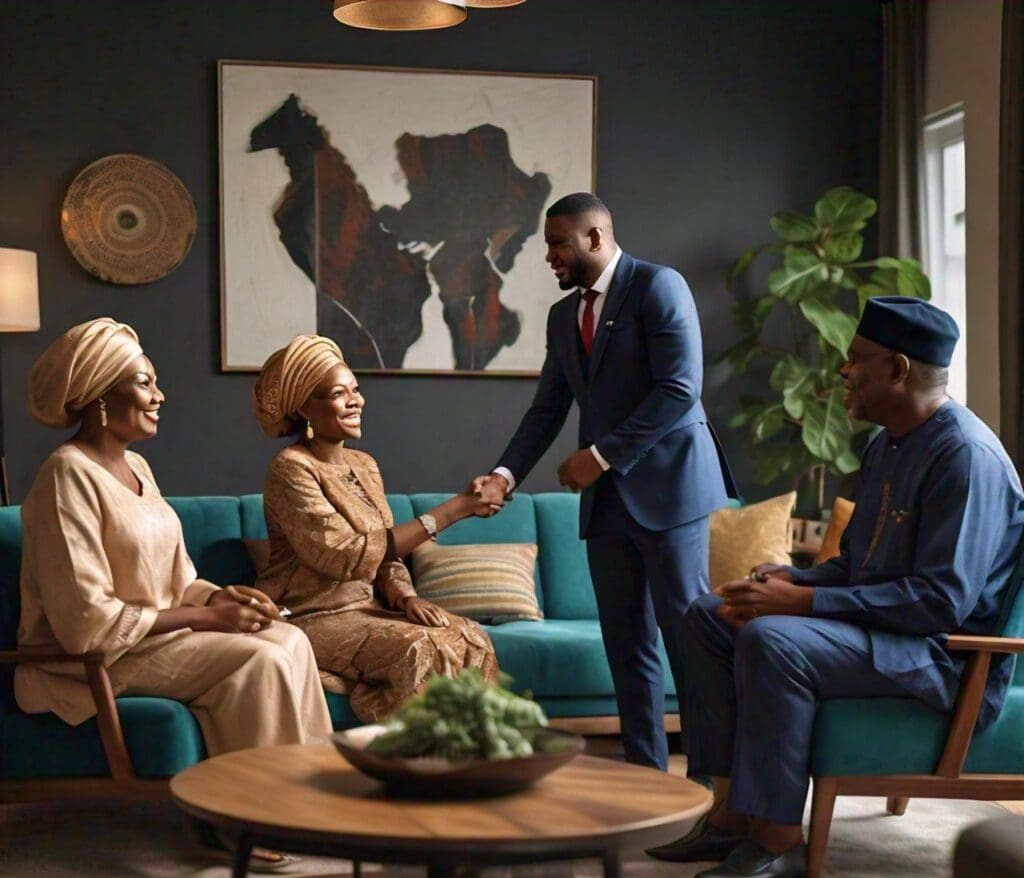Understanding Hypergamy in Nigerian Context
Hypergamy, the practice of seeking a partner with a higher social, economic, or educational status, has been a long-standing feature in many cultures around the world, including Nigeria.
In Nigeria, it’s often intertwined with cultural expectations, family roles, and the evolving digital landscape. This phenomenon is influenced by both traditional norms and modern societal dynamics.
Hypergamy in Traditional Nigerian Societies
In traditional Nigerian societies, marriage was often seen as a contract not only between individuals but also between families. Families would assess the potential partner’s background, including wealth, social status, and lineage, before allowing a union to proceed.
This cultural practice ensured that financial stability and social hierarchy were maintained, with daughters being encouraged to marry up for the security and advancement of the family.
Bride Price and Marriage Expectations
In many Nigerian cultures, the bride price is an important factor in marriage negotiations. This practice further enforces the importance of economic standing in selecting a partner.

It has long been seen as a way of demonstrating the groom’s ability to care for the bride, but it also reflects the economic implications of marriage in Nigerian society.
The Influence of Education, Career, and Social Media in Marital affairs
In the modern context, hypergamy in Nigeria is not only about securing financial stability, but also about gaining social capital and upward mobility.
As more Nigerians, especially women, pursue higher education and professional careers, the desire to “marry up” has expanded to include educational and professional status.
Social Media’s Impact
With the rise of social media platforms like Instagram, Twitter, and Facebook, there has been a shift in how wealth and status are displayed and desired. Many young Nigerians, particularly women, curate their lives online to attract partners from wealthier backgrounds.
This phenomenon has contributed to a growing emphasis on outward displays of wealth and status, reinforcing the hypergamous mindset among some.
Challenges and Criticisms of Hypergamy in Nigeria
While hypergamy has become more ingrained in Nigerian society, it comes with its challenges. One major issue is the economic pressure it places on men, who may feel obligated to prove their worth by attaining high social and financial status.
Power Imbalances in Relationships
Hypergamous relationships can lead to power imbalances, where one partner’s financial or social standing may overshadow the other. This dynamic can create tension, potentially undermining emotional compatibility and trust.
It also raises questions about the longevity of relationships that are based primarily on status and financial standing.
Benefits and Evolving Perceptions of Hypergamy
Despite the criticisms, hypergamy is not without its benefits. The pursuit of upward mobility through marriage can lead to personal growth, career development, and financial stability for both partners.
Additionally, it has contributed to the growing trend of women seeking higher education and professional success before considering marriage.

As gender roles continue to evolve, many modern Nigerian couples are moving towards more egalitarian relationships, where both partners contribute to the family’s growth—financially, emotionally, and socially.
This shift is gradually changing perceptions of hypergamy, with more individuals focusing on mutual growth, compatibility, and shared values rather than solely on financial considerations.
Managing Hypergamy in Modern Nigerian Relationships
While hypergamy can offer certain advantages, it’s crucial to approach relationships with an open mind and heart. For those navigating the complexities of hypergamy, the key is fostering open communication and mutual respect.
Tips for Navigating Hypergamy:
- Promote Open Communication: Discuss financial expectations, career aspirations, and family goals openly with your partner.
- Foster Mutual Growth: Encourage each other’s personal and professional development to build a partnership based on equality and shared ambitions.
- Prioritize Emotional Compatibility: While financial stability is important, emotional connection and compatibility should remain at the forefront of relationship decisions.
Balancing Tradition and Modern Relationship Goals
Hypergamy remains a significant part of Nigerian relationship culture, but as the nation continues to evolve, so do its relationship dynamics.
Balancing traditional expectations with modern ideals of love, respect, and mutual growth will help Nigerian couples navigate the challenges of hypergamy and build more meaningful relationships.



